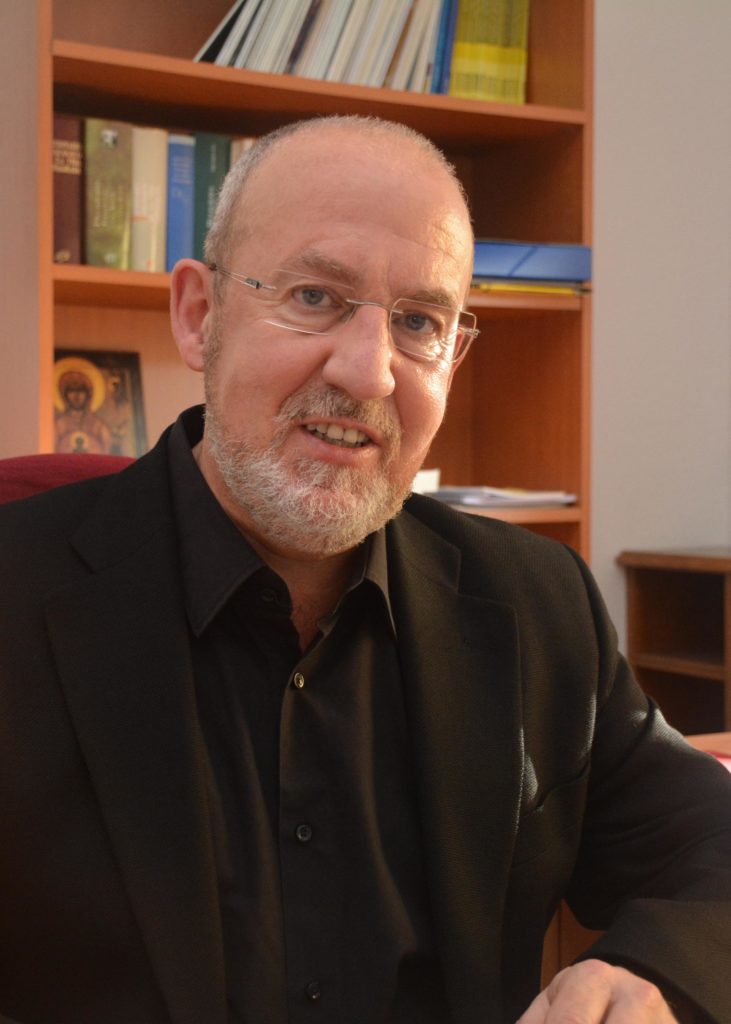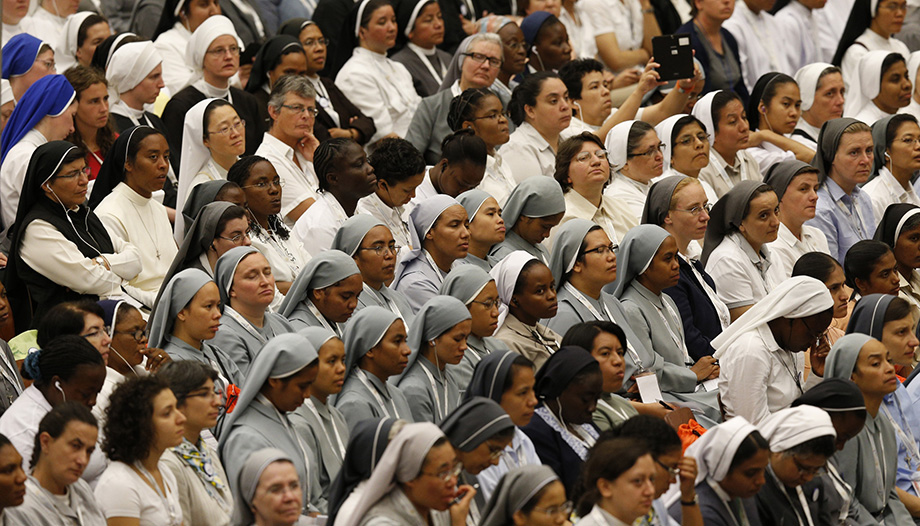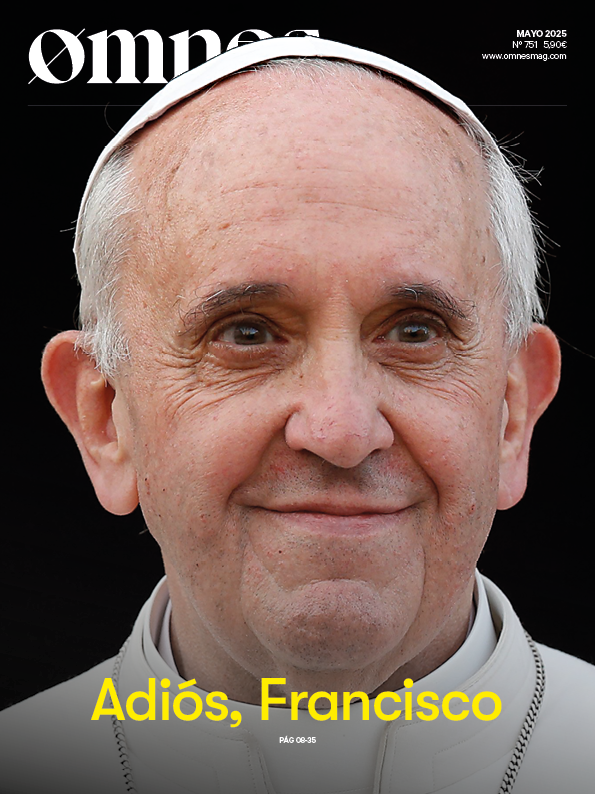Saturday, May 22nd concludes the 50th Consecrated Life Week organized by the Theological Institute of Religious Life under the motto "Consecrated for the Life of the World: Consecrated Life in Today's Society". More than 2,000 members of different institutes of consecrated life from all over the world reflected on and shared the challenges that our post-Christian society poses to consecrated persons today.
On this occasion, Omnes has interviewed Antonio BellellaThe director of the Theological Institute of Religious Life (ITVR), a Claretian missionary and director of the ITVR, spoke about these days of encounter, which also included a special greeting from Pope Francis. A dialogue in which the director of the Theological Institute of Religious Life recalled the need to establish a dialogue with God, the brothers and the reality in order to update the charism of each Institute without distorting it.
The Consecrated Life Week has been a key point in the calendar of religious in our country for half a century. With the current circumstances it has had to adapt its mode of participation. How has this week been received among the Institutes of Consecrated Life in our country?
-When we were thinking about the possibility, or not, of celebrating the Consecrated Life Week a few months ago, we realized that the modality of the week would not be the same as that of the Consecrated Life Week. online It was the only way to be able to celebrate our 50th anniversary by making the usual congress a meeting place, a quality formative initiative and a space in which some of the concerns of the religious would once again be present. With fear, with uncertainty, we launched the initiative, knowing that in the month of May, the fatigue for the online modality was going to be greater.
We are very happy because the response of the religious communities has maintained the same level. Although numerically there are fewer registrations, in any case, we have more people, because behind each registration there is a greater number of people: communities that follow it together, sick people who are in the afternoon taking advantage of this opportunity to receive this formation or connections from Africa, Asia, America and many in other countries of Europe.
We hope to be able to maintain this dual-mode training dynamic when we are able to have face-to-face meetings again. In fact, we are thinking of courses that combine the face-to-face and online modality, in a mixed week for next year. We are also thinking, as an Institute, on how to help religious to be formed to enter into this world of networks as a space of evangelization. This is a space where men and women of today live and communicate their concerns and, many times, they do not discover the best answers.
In the message sent to you by the Pope, he urges you, among other things, not to be afraid and especially not to lose your identity. Is it difficult to keep your foundational charisms alive in a society that is sometimes very different from the times in which you were born?
The foundational charism is a gift of the Spirit and every gift of the Spirit, if it is such, is alive. The wind, the power of the Spirit, is what Jesus says in chapter 3 of John, in his dialogue of Jesus with Nicodemus. This living Spirit is confronted with living realities that are the founders, persons open to the action of God, who seek God, who try to respond to his will.
The foundational charism must always be confronted with personal, social, historical and even ecclesial actualization, because the Church is also subject to the movement of the Spirit, who makes himself present in different ways, according to the different gifts we all receive. The important thing is that we never lose sight of the fact that we are part of the Body of Christ.
The foundational charisms have to face personal, social, historical and even ecclesial actualization.
Antonio Bellella, cmf. ITVR Director
How can we avoid being overwhelmed by this changing reality, to the point of losing or diluting the foundational gift? Discernment is necessary. A discernment that many Institutes have been tackling since the early years, for example, of the Jesuits or the Dominicans. To open an intense dialogue that is sustained on personal discernment based on the profound search for the will of God, precisely so that the gift of the Spirit, despite my limitations and the passing of time, does not lose the strength with which the Spirit has given it the ability to create something new continuously.
Along these lines, how can the life of an Institute be updated without "liquefying", we might say, its foundational charism?
-No institute is willing to "liquefy" its charism. Much less so since the Second Vatican Council in the decree Perfectae CaritatisHe strongly insisted on a return to the origins. This return cannot be a archaeological tourIn the sense of making the origins a kind of myth that petrifies, because a petrification is always dead. It is a historic return.

How is it actualized? By putting this charism in dialogue and listening together to the Spirit, making sure that discernment is not separated from our lives and allowing an enriching dialogue to be generated: first with God; then, with the people who have received this charism, not only those who share the same profession but in all the forms of life in which it is present and, thirdly, generating a true current of grace between what God is saying to us, not only through our personal encounter, our prayer, our reading of Scripture and the Magisterium of the Church, but also what God is saying to us in the reality in which we live.
Pope Francis is promoting, in a very clear way, the presence and the updating of the role of consecrated persons in the life of the Church and society and has alluded to the sterility of some institutes of consecrated life, encouraging reflection on the causes. How do you welcome this proposal of the Pope at a time of vocational drought throughout the Church?
-Pope Francis is a religious. Those of us who have received this gift in the Church and those of us who live this vocation notice it, and I believe that not only us, but everyone. The Pope speaks very clearly to us religious. In none of his interventions has he spared, when he has had to do so, the necessary exercise of fraternal correction, which is part of the practice of charity.
With regard to the vocational drought, I think he says things very clearly. In the course of this week, I was saying that the first thing the Pope has done is to teach us not to fall into the trap of numbers, the battle of the numbers. This kind of theology of meritIf I behave well, everything goes well for me, if I behave badly, I will have many disasters... religious life has behaved badly, therefore God withdraws his grace"... it is so simple that it does not respond to any deep spiritual experience, the life of Jesus and the Pauline letters contradict this simple theory of merit.
We welcome the Pope's proposal as an appeal to open your eyesWe have to think that, although our vocational reality, our vocational map is not as well "mapped" as it was a few years ago, this vocational reality still exists. What we have to do is to map it again to see how, today, God is making himself present in the dedication of countless people who feel that vocation affects them, who feel called to live the charisms, maybe not in the same majority way in which we have done it a few years ago, but with a different, particular and enriching intensity.








